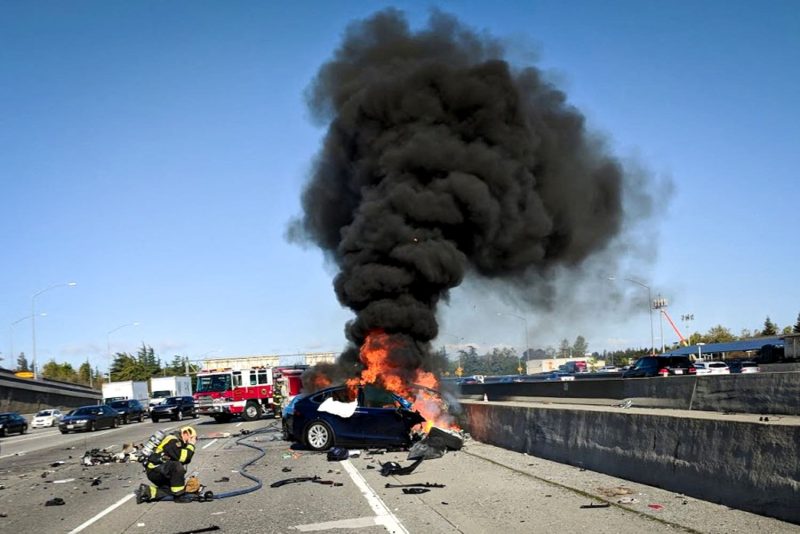Tesla Settles Lawsuit Over Autopilot Crash That Killed Apple Engineer
The recent settlement of a lawsuit between Tesla and the family of Walter Huang, an Apple engineer who died in a crash involving Tesla’s autopilot system, has brought renewed attention to the safety implications of autonomous driving technology. The lawsuit, which was initially filed in 2019, alleged that Tesla’s autopilot system was defective and failed to properly detect a concrete highway barrier on the morning of the crash.
The incident, which occurred in Mountain View, California, in 2018, raised concerns about the reliability of Tesla’s autopilot features and the potential dangers of over-relying on such advanced driving assistance systems. Huang’s family claimed that the autopilot system was not properly designed and failed to respond to the concrete barrier, resulting in the fatal crash.
Tesla, on the other hand, maintained that the system had issued multiple visual and auditory warnings to Huang to take control of the vehicle and that he had received several prior notifications to hold the steering wheel. The company argued that the crash was primarily due to Huang’s inattentiveness and failure to heed the warnings issued by the autopilot system.
The legal battle between Tesla and Huang’s family highlighted the complex legal and ethical issues surrounding autonomous driving technology. While proponents of self-driving cars argue that these systems have the potential to reduce accidents and save lives, critics point to incidents like the one involving Huang as evidence of the risks associated with relying on autonomous systems that are not foolproof.
The settlement of the lawsuit, the terms of which remain confidential, reflects a compromise between Tesla and Huang’s family. It serves as a reminder of the ongoing challenges in regulating and ensuring the safety of autonomous driving technology. As self-driving cars become more prevalent on the roads, it is essential for manufacturers to continuously improve the safety features of these systems and for drivers to remain vigilant and aware of their limitations.
Overall, the resolution of the lawsuit underscores the need for a balanced approach to the advancement of autonomous driving technology, one that prioritizes safety, accountability, and transparency. As the technology continues to evolve, it is crucial for all stakeholders – from automakers to regulators to consumers – to work together to ensure that self-driving cars are safe, reliable, and capable of preventing tragic incidents like the one that claimed the life of Walter Huang.




























